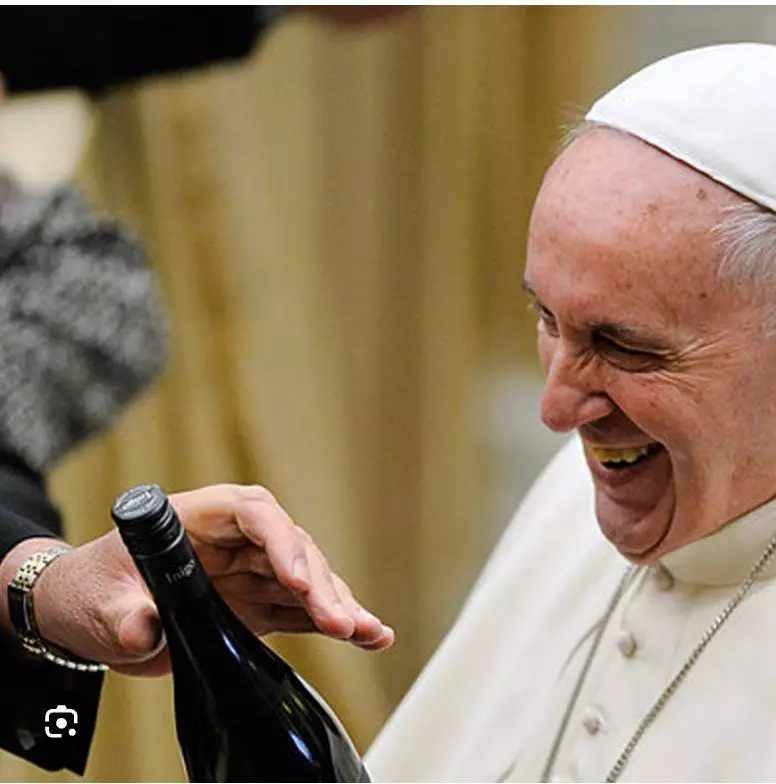The recent passing of Pope Francis may not just resonate within religious circles but sends ripples across the world of fine wine, particularly among Italian vintners. Though originally from Argentina, the Pope’s Italian roots have long intertwined with one of the country’s most revered traditions: winemaking. His address to Italian wine producers, where he emphasized the significance of their contributions—both culturally and economically—reflects an awareness of how deeply embedded wine is in Italian identity. The Pope referred to the producers’ efforts as not merely business ventures but as sacred responsibilities entrusted by God, highlighting the intersection of spirituality and viticulture in the Italian landscape.
With potential shifts in papal influence looming, the future of vineyards like Heras Cordón in Spain, which has provided wine for the Vatican since 2001, might hang in the balance. This winery has benefitted immensely from the prestige associated with its title as the exclusive supplier to the Vatican. Its bottles, distinguished by the Vatican coat of arms and a poetic motto, exemplify how intertwined ecclesiastical relations can elevate a brand’s status. The looming uncertainty related to any forthcoming papal transition invites speculation about how such changes could affect established winemaking partnerships and reputations.
Gen Z: Economic Pressures and Alcohol Consumption
Meanwhile, another significant shift in the cultural consumption of wine is emerging, driven by the habits of Generation Z. Contrary to popular narratives that suggest younger generations are simply opting for sober lifestyles due to health consciousness or social pressures, a recent study uncovers a more sobering truth—economic adversity is the primary culprit. As analyzed by Bourcard Nesin of Rabobank, Gen Z is grappling with lower incomes, unstable job markets, and prolonged dependence on parental support, all of which curtail their disposable income for luxuries such as wine.
This generation’s relationship with technology also exacerbates traditional social landscapes, as digital interactions often replace in-person gatherings. Consequently, wine consumption—traditionally associated with social experiences—has inevitably decreased. While future economic conditions may allow Gen Z to indulge more freely in alcoholic beverages, the overall decline in consumption indicates a fundamental shift in lifestyle and social dynamics that won’t easily pivot back to pre-existing norms.
An Innovative Approach: Transforming Waste into Sustainable Materials
In an age marked by growing environmental consciousness, the beverage industry is witnessing an intriguing fusion of sustainability and innovation. Arda Biomaterials, a UK-based company, has made thrilling advances by repurposing waste from beer and whisky production into a leather alternative. The infusion of over $5 million in funding aims to enhance production techniques and research capabilities, thus fostering a return to the days before plastic took center stage in material innovation.
This initiative embodies a broader commitment to sustainability across industries. By utilizing plant-based proteins, Arda Biomaterials not only addresses waste management issues associated with large breweries but also meets the growing consumer demand for eco-friendly products. As companies like Arda secure partnerships with major corporate sponsors, the prospects for a greener future in the beverage sector look increasingly promising. Such endeavors illuminate the path toward a more responsible and forward-thinking approach to consumer goods.
The Unexplored Benefits of White Wine
In the realm of health, the association between wine and cardiovascular benefits continues to garner interest, particularly with the long-acclaimed merits of red wine. However, recent research from Fudan University throws a spotlight on the potential health advantages of white wine and Champagne. The study analyzed a sizeable cohort, offering a broader understanding of how moderate consumption of various wines may play a role in reducing sudden cardiac arrest risks.
The findings suggest that while healthy lifestyle choices are crucial, the incorporation of white wine into one’s diet may also confer similar benefits attributed to red wine, challenging previous assumptions and expanding perceptions of wine health benefits. Contrary to the longstanding notion that red wine dominates in this regard, recognizing the potential of white wine opens new discussions in health and dietary habits, demonstrating that moderation across all forms of wine could be advantageous.
The multilayered nature of wine—from its religious significance to economic influences and health implications—serves as a testament to its pervasive role in society. As we navigate these contemporary challenges and opportunities, it becomes clear that wine is much more than a mere beverage; it is a rich tapestry that entwines culture, health, and innovation, promising a fascinating future ahead.

